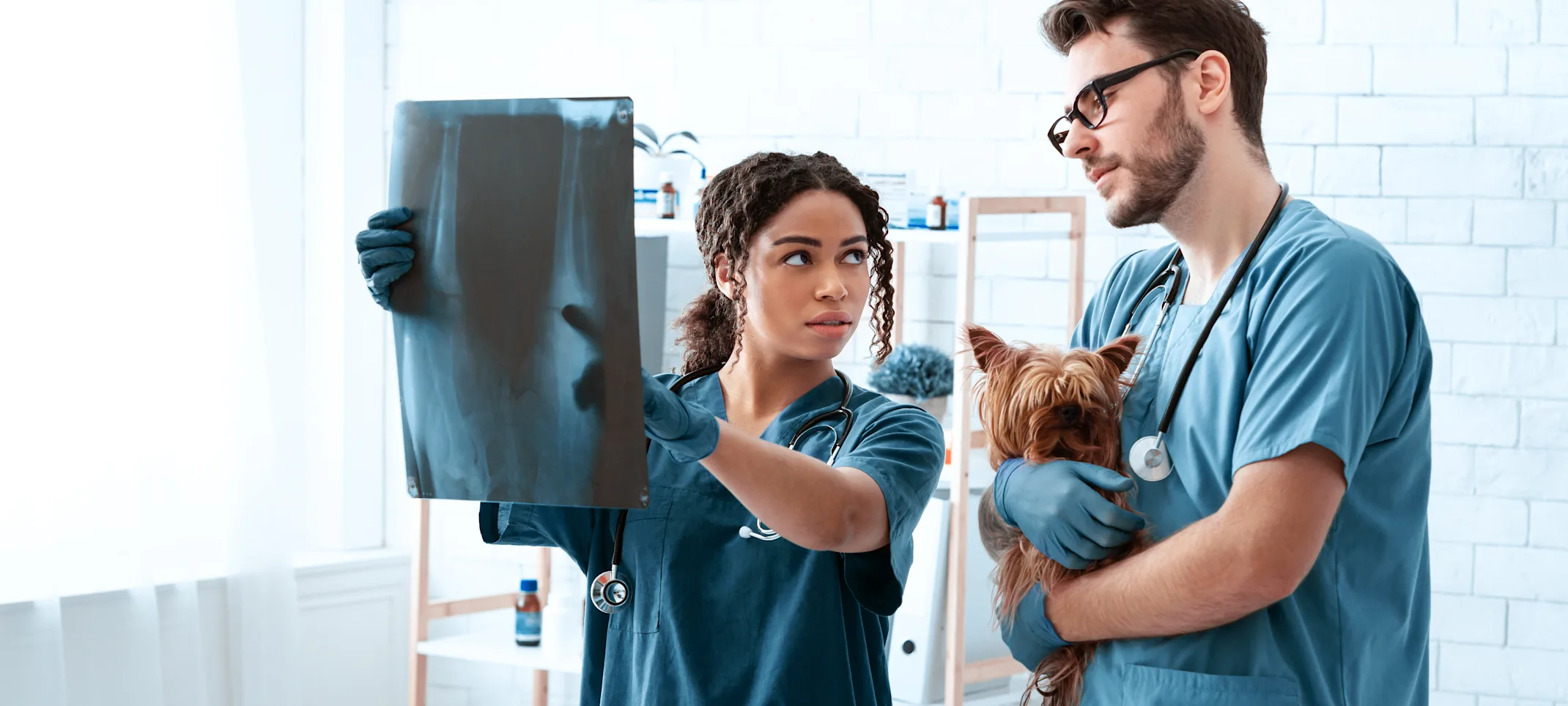Kirkwood Animal Hospital
Radiology
Veterinary radiologists are specialists who focus on running and interpreting diagnostic imaging tests.

Our radiology team is equipped to perform tests such as X-rays, CT scans and MRIs. Radiologists use these test results to accurately diagnose ailments that your pet may be suffering from. You may not interact with our radiologists, but they are crucial to the effective care of your pet.
Tests Offered
We are equipped to perform a number of imaging tests and procedures, and our radiologists are at the forefront of an ever expanding field. When you bring your pet into our hospital, we may perform a number of the examinations below.
X-rays: This common test can be used to inspect the health of bones and organs or to view foreign objects and some tumors.
Ultrasounds: These are commonly used to monitor pregnancies in animals and can also be used to examine internal organs.
Common Issues We Can Diagnose
Our veterinary radiology specialists are crucial to your pet’s care. Imaging services are used to quickly and accurately diagnose health problems, and to subsequently create effective treatment plans. The following list includes some of the common conditions that radiology specialists can help identify.
Broken bones: X-rays allow radiologists to examine bone structure and quickly identify fractures or irregularities.
Cancer: Advanced imaging can display tumors, masses, and other growths within the body.
Heart disease: Our diagnostic tools let our veterinarians see the heart’s size, irregularities, arterial blockage, and other problems.
Respiratory illness: Some tests are used to inspect the lungs and airways and can shed light on the severity of respiratory issues your pet may be facing.
Pregnancy: Ultrasounds are helpful in evaluating the health of pregnant animals and their babies, and can help guide natal healthcare decisions.
